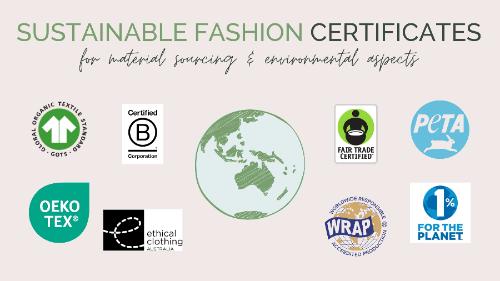
ethical fashion certifications that are good to know
Certifications help when it comes to shopping with a conscience. They identify which brands are really on a sustainable and ethical journey. Each certification tells a story - about the care for our environment, the respect for workers' rights, and the commitment to quality, sustainable materials.
Certifications play a crucial role in identifying truly ethical and sustainable brands. Due to the complexity of the fashion industry's supply chains, sustainability remains multifaceted.
Here is an evolving list that aims to demystify various certifications you may encounter – a work in progress that will expand gradually.
When you choose items backed by these certifications, you're casting a vote for a better world. the more we lean towards ethically certified goods, the more we encourage companies to adopt transparent and responsible practices.
say NO to greenwashing
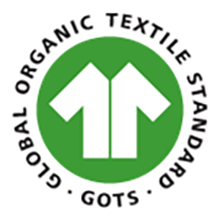
GOTS - The Global Organic Textile Standard (GOTS) certifies textiles made with at least 70% organic materials, ensuring strict social and environmental standards across the supply chain. It regulates the use of chemicals like dyes to minimize environmental impact and toxicity. GOTS also monitors water and energy usage, requiring companies to track and reduce resource consumption. When you choose GOTS-certified products, you’re supporting ethical, sustainable, and transparent practices.
B-Corp certification measures a company's social and environmental impacts, ensuring it meets high standards of accountability and transparency. To achieve certification, businesses must score well on the B Impact Assessment, which evaluates their impact on employees, customers, communities, and the planet. This system encourages brands to improve their practices and highlights those committed to making a positive difference. The B-Corp logo signals dedication to ethical operations and responsible business practices, making it a trusted marker for conscious consumers.
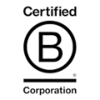
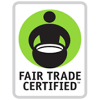
Fair Trade focuses on economic empowerment and sustainable living by ensuring workers have safe conditions, fair pay, and opportunities to build better livelihoods. Certification means meeting strict standards that protect workers' rights, uplift communities, and safeguard the environment. Fair Trade factories also invest in eco-friendly practices, such as water-efficient technology, waste reduction, and minimising chemical use.
Look for Fair Trade Certification to support brands that prioritise the well-being of garment workers and environmental responsibility in their supply chains.
Fair Trade means no slave labour, no child labour, safe and fair working conditions, and fair pay.
WRAP (Worldwide Responsible Accredited Production) certifies ethical practices in the textile industry, ensuring safe, lawful, humane, and ethical manufacturing worldwide. It emphasises the well-being and dignity of workers, fostering a more humane and responsible industry. Seeing the WRAP certification means supporting brands committed to fair treatment, ethical production, and creating a better world for both workers and consumers.
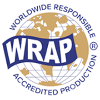
Choose brands that prioritises people over profits and join the movement towards a more socially responsible and inclusive industry.

OEKO-TEX® ensures fabrics are free from harmful chemicals, promoting a cleaner, greener world. With 18 institutes across Europe and Japan, they bring expertise to keeping textiles safe and sustainable. Their STANDARD 100 badge guarantees products are safe for consumers and the planet. By choosing OEKO-TEX® certified items, you protect your health and the environment while supporting responsible practices in the textile industry.
Ethical Clothing Australia -ECA
An accreditation body, working collaboratively with local textile, clothing and footwear (TCF) businesses to protect and uphold the rights of Australian garment workers.
To be ECA accredited, a business’s manufacturing operations are audited from design to dispatch, ensuring local TCF workers, are being paid appropriately, receiving all their legal entitlements and working in safe conditions.
By supporting an ECA accredited business you are helping to strengthen the Australian TCF industry and you’re valuing the rights of our local garment workers.
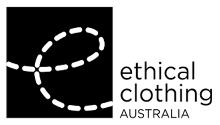

Better Cotton Initiative - BCI
The Better Cotton Initiative or BCI is a non-profit organisation with the largest cotton sustainability program in the world. BCI works to make global cotton production better for the people who produce it, better for the environment it grows in and better for the sector’s future. They do this by setting a clear criteria for participants, encouraging companies to incorporate environmental, social, and economic fairness.
When considering clothes made with BCI cotton, know they are not only sourced more sustainably but also follow ethical practices. Just a note, BCI cotton isn’t as sustainable as organic cotton.
The Global Recycled Standard (GRS) and Recycled Claimed Standards (RCS
Are an international, voluntary standard enforced by the Textile Exchange. The standards set the criteria for third-party certification of recycled materials and chain of custody.The GRS is intended for all products that contain at least 20% recycled materials and are required to meet strict social and environmental requirements related to processing and chemical use. Chain of Custody Certification ensures that the identity of the recycled material is aintained: from the recycler to the final product.

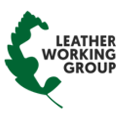
leather obtained through more sustainable practices.
The Leather Working Group
The Leather Working Group, also known as LWG, gives its stamp of approval to leather tanneries and traders. They award gold, silver, or bronze rankings based on how well these stakeholders adhere to environmental protection guidelines. LWG's audits cover waste management, water usage, energy efficiency, and more. All assessments are carried out by third parties using consistent standards.
Being certified by LWG means that a company or product uses leather obtained through more sustainable practices.
forest for all forever!
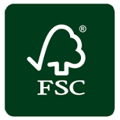
Forest Stewardship Council (FSC) is becoming more popular in the fashion industry as brands and shoppers become aware of the ecological impact harvesting trees for fibre content. Where FSC used to be reserved for paper and paper products manufacturing, it’s now being used to ensure cellulose based fabrics such as rayon and viscose are made from FSC-certified forests.
FSC work with forests, supply chains, retailers and many others in order to make sure that the 10 FSC principles are met. An FSC certified forest ensures that the product comes from a responsibly managed forest and supply chain.But,be aware they may not be sustainable in their water usage or other materials.
PETA Approved Vegan certifies apparel, accessories, furniture, or home decor products to be animal-free. However, with this certification participants do their own self-auditing, and there are no checks to confirm that they are being truthful.

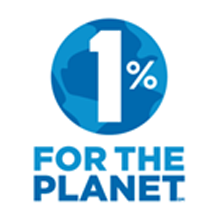
1% For The Planet anyone who is committed to giving at least 1% of their sales or salary to the environment can become a
member of 1% For The Planet. Their mission is to “bring dollars and doers together to accelerate smart environmental giving.” If a brand is a 1% for the Planet member, it’s a good clue that they are committed to more than just profit.
